Five habits of successful trademark clients
Erik K Pelton
APRIL 16, 2021
When new clients ask me about what they should do to fully protect and guard their brand, I point them to the five most common habits of a successful trademark client: They don’t delay. They file early and they file often. If they’ve got a new name, they move quickly to apply for it and start the process because they know that delay can harm the process and harm their ability to protect or use that name.
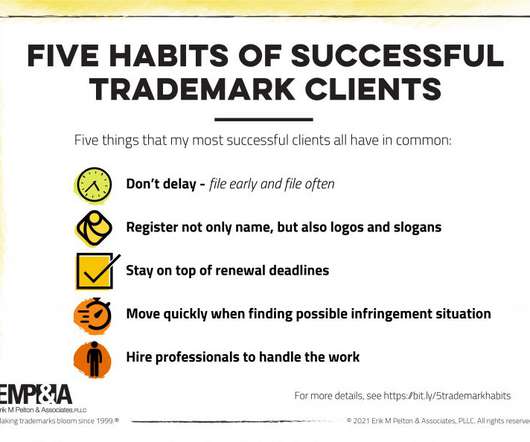

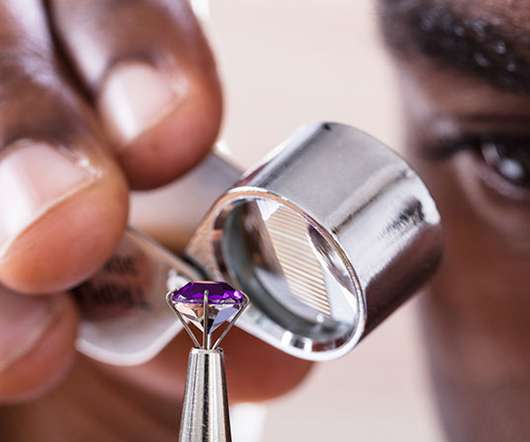


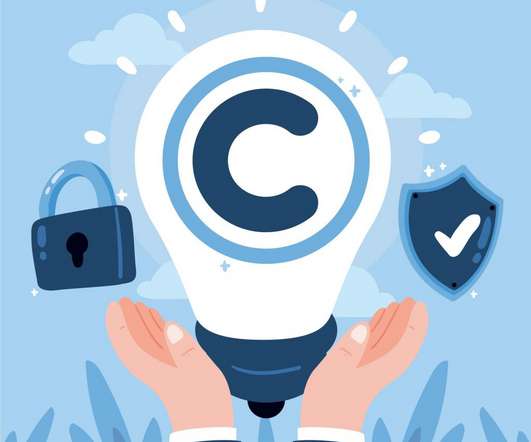
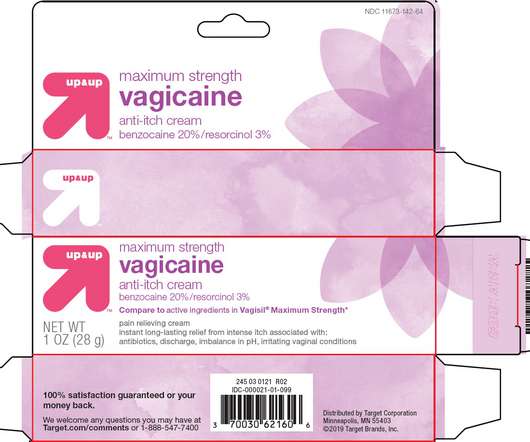
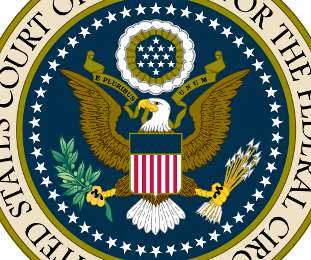

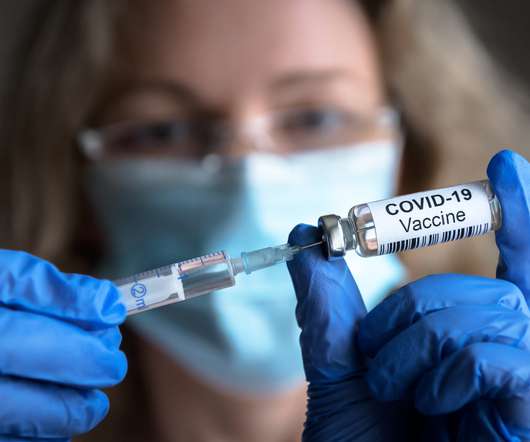






Let's personalize your content